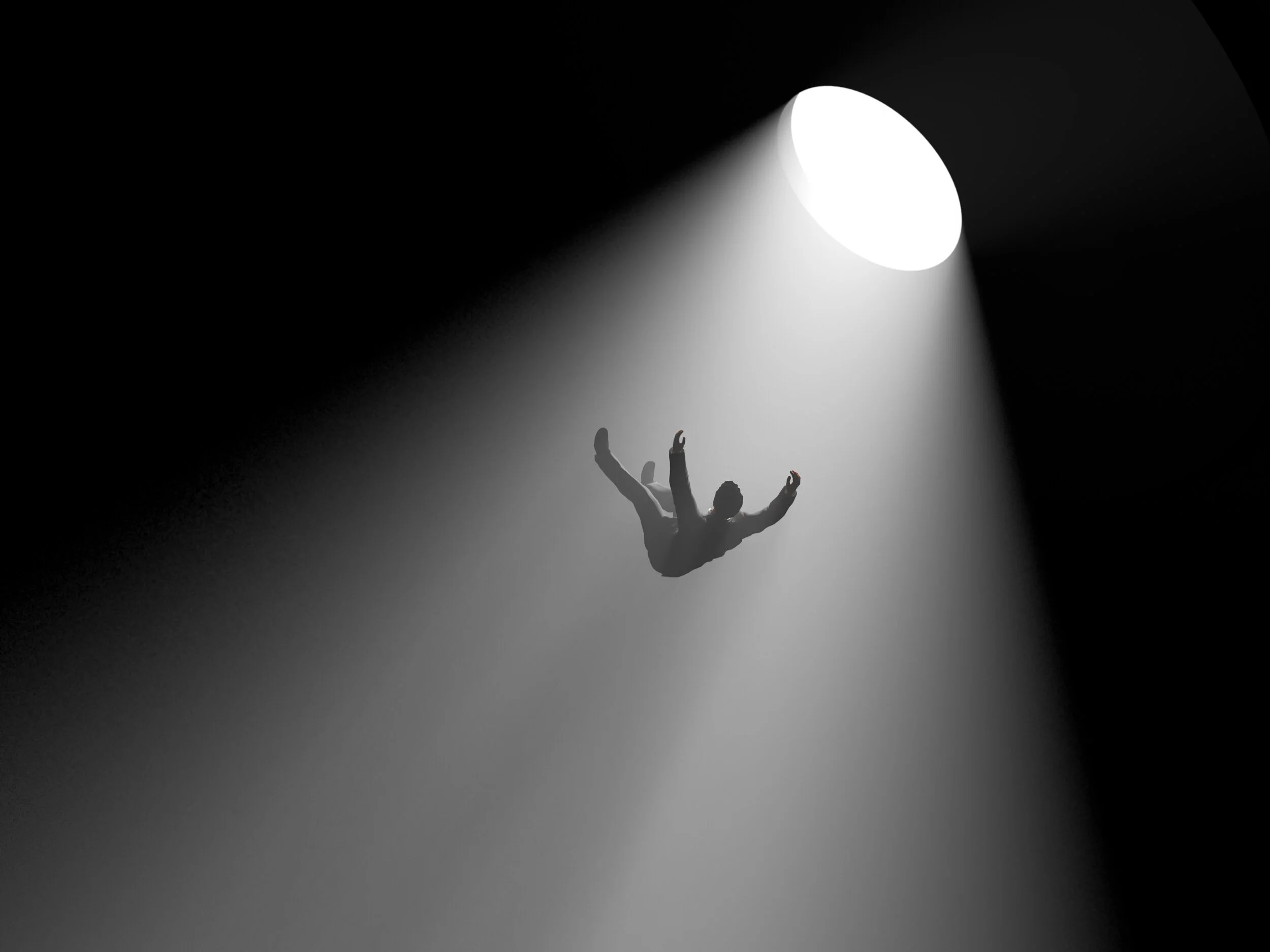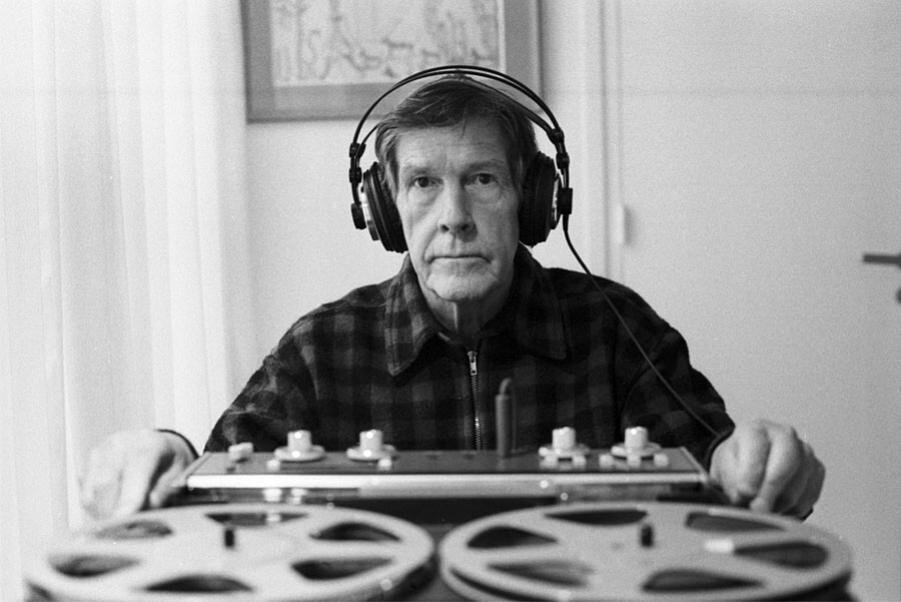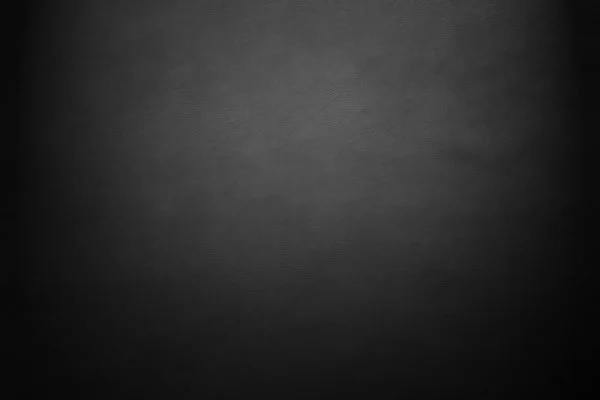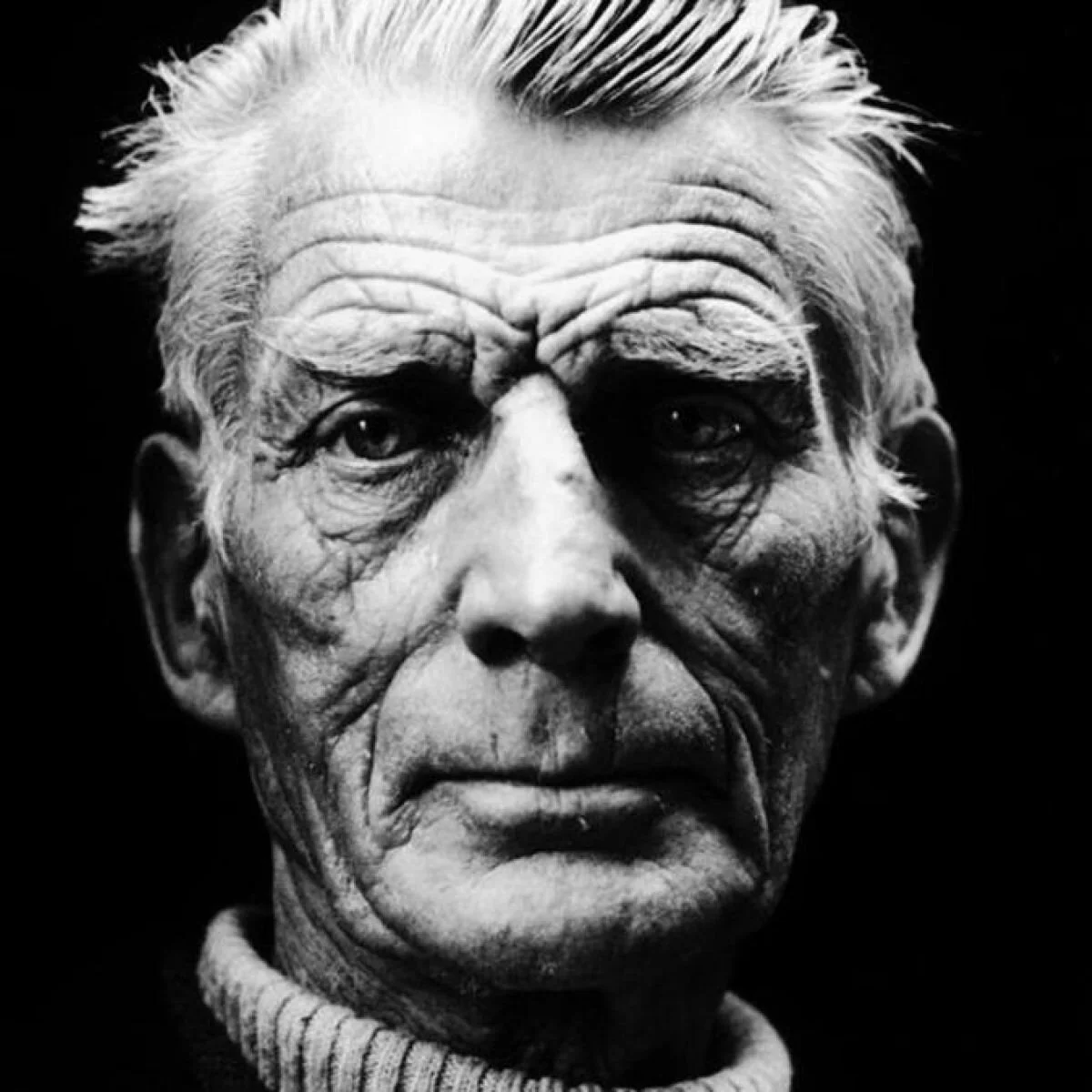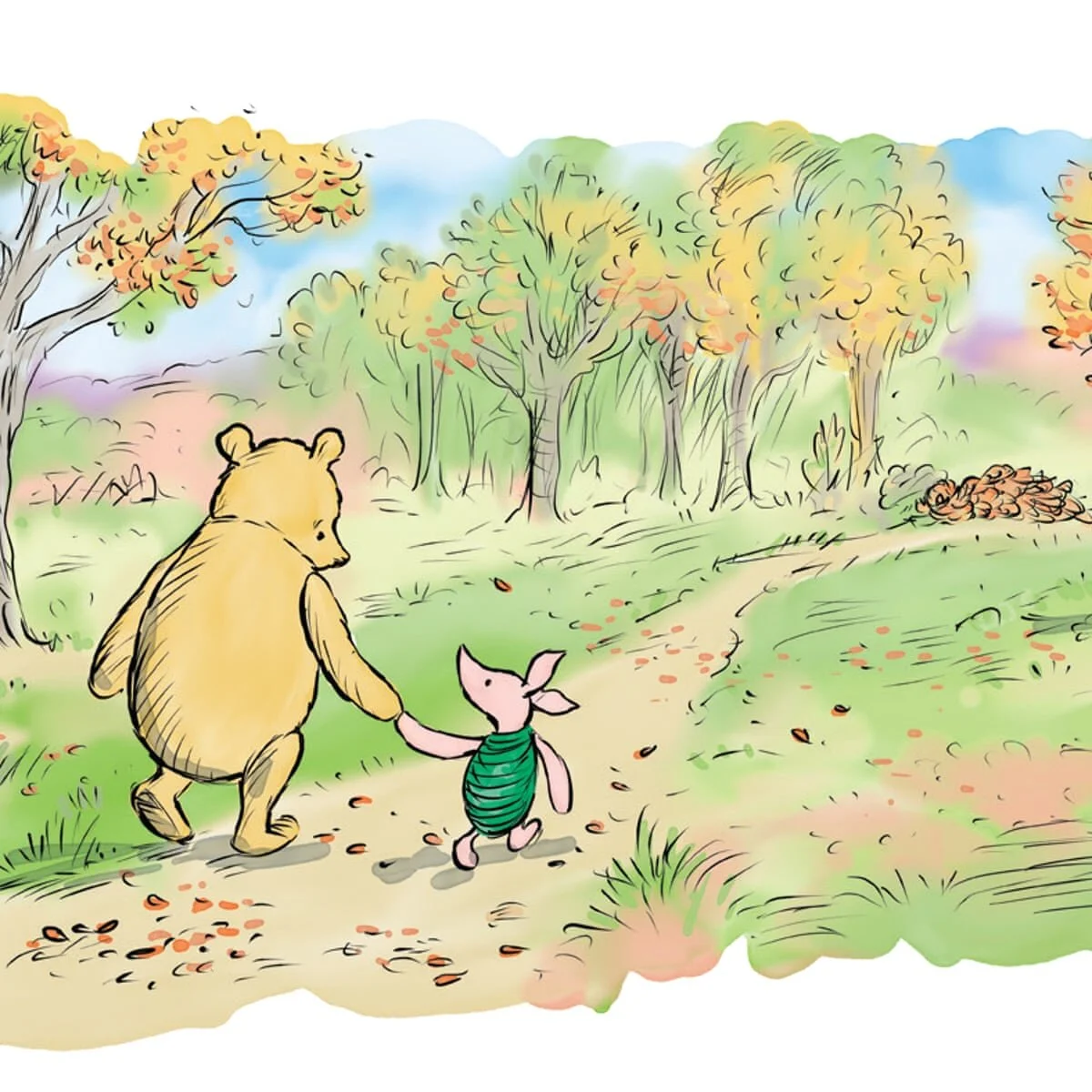By The Landlord
“I love to talk about nothing. It's the only thing I know anything about.” – Oscar Wilde
“ESTRAGON: Nothing happens, nobody comes, nobody goes, it's awful!” – Samuel Beckett, Waiting for Godot
“We can know only that we know nothing. And that is the highest degree of human wisdom.” – Leo Tolstoy, War and Peace
"I have nothing to say and I am saying it and that is poetry as I need it." – John Cage
“Doing nothing often leads to the very best of something.” – A. A. Milne, Winnie The Pooh
What are you doing? Lingering? Looking? Reading this? There's nothing going on here, y'know.
Yes, that's right. There's nothing on the Song Bar this week. But the trouble with nothing, is that it's always hiding and becoming something.
It's a paradox, because we can't help but do, or create, something when trying not to. Nothing to declare? Of course there is. Nothing to see here? That only makes you want to stop and look and not move on. I'm saying nothing. And by doing that, I'm saying a lot. It's often far more powerful than saying something. Nil by mouth? Then that means there's plenty going on in the body. I came from nothing, and I leave with nothing, but even by saying I'm declaring that I'm someone, and bringing a lot of other forms of baggage with me.
So this week it's all about songs about nowt, or nought, the big nada, zilch, and by association, no one, nobody, but of course in whatever context, there's always someone, a something, a story, a feeling behind it. This week's songs should be primarily, or prominently be about nothing, or nothingness, and other associated words. They should not just include the word 'nothing' somewhere in the lyrics without it meaning something, otherwise that would be, well, meaningless.
Perhaps there's no such thing as nothing. But this week perhaps it's all about people looking for, finding, perceiving, describing and then seeking to feel it, hear it, say it or do it. Or not.
Black nothing. Almost
What does nothing look like, sound like, feel like? Is it pleasurable, or painful, fascinating or boring? Spongy, hard, airy, wet, dark, warm, cold? Sometimes it is wonderful to do nothing for a change. And be busy at it. Or at least try to. But then, when there's a huge list of things to get through, there's often that nagging feeling, like a crow sitting and pecking on your shoulder, that you've achieved hardly anything at all. And in another sense, in that imperfection, you might have even failed to achieve nothing. You've done almost nothing, and therefore you feel like nothing. Almost.
So how might we picture nothing? Is it some all light-absorbing absolute blackest black, or blinding white-noise white, or silent except for the sound of our own panicked or calm thoughts, or colourless, or some kind of indescribable void? Is it some imperceptible body temperature, an all-consuming black hole, or maybe a white hole? It is a total deprivation of all senses?
Arguably all three come up, in a context that has been mentioned before in these pages, in the recollections of British climber Joe Simpson in his acclaimed 1988 book Touching The Void, made into a dramatised 2003 documentary film by Kevin Macdonald. At times, all senses and sanity are taken to levels of complete distortion, rendering perception to extremes, but also to a form of nothing. In 1985, he and fellow climber Simon Yates got stuck on the way down the notorious Siula Grande in the Peruvian Andes, Simpson already with a broken leg, Yates forced to cut the rope to avoid both of them falling off the edge, Simpson dangling in the air, then landing down a huge, dark crevasse, presumed dead. That black, void of nothing is where, broken in many ways, feeling his final hours were coming, he faced that ultimate sense of isolation, death, from the blinding light of snow to the darkness of the hole, something powerful and profound and devoid of any sense of faith or afterlife.
"Something died in me that day," he later said, and yet, unable to climb up and out, decided to descend further into the crevasse, resembling some silent, wet, slippery jaws of black hell. Somehow, though, he found another way out. It was sometime later that after many hours of agonising crawling and pain, in the silence and exhaustion he experienced the black comedy process of a song coming into his head, one he joked would be the one to mark his eventual passing, Boney M just going round and round.
Out of nothing, out of silence comes something. That's part of the philosophy and modus operandi of John Cage, the experimental composer, best known for his piece 4'33", one of silence, but is really about the conductor raising his baton, orchestra sitting awkwardly staring the page, and the audience, feet shuffling, bums moving on chairs, coughing, breathing, sighing.
John Cage
Another attempt at a purity of aural nothingness, soiled by sound, of course also comes in the form of the genius and notoriously difficult Mancunian music producer Martin Hannett, portrayed in the Factory Records film 24 Hour Party People, here attempting to record silence in the Peak District, before being disturbed by Tony Wilson played by Steve Coogan.
Yet with all kinds of nothing happening in the Bar this week, there are strangely, lots of people arriving to talk about it. Haven't they got anything better to do?
“A nihilist is a man who judges of the world as it is that it ought not to be, and of the world as it ought to be that it does not exist. According to this view, our existence (action, suffering, willing, feeling) has no meaning: the pathos of 'in vain' is the nihilists' pathos – at the same time, as pathos, an inconsistency on the part of the nihilists,” declares Friedrich Nietzsche, reading from his book Will To Power, and of course the very concept had an enormous influence on punk, the idea of no future, and life being pointless.
Friedrich Nietzsche. Nothing if not nihilistic
It being a bar, here, sitting next to Friedrich, is of course that every present bar fly, Charles Bukowski, who sees Will To Power and raises his own book, Women:
“I was drawn to all the wrong things: I liked to drink, I was lazy, I didn't have a god, politics, ideas, ideals. I was settled into nothingness; a kind of non-being, and I accepted it. I didn't make for an interesting person. I didn't want to be interesting, it was too hard. What I really wanted was only a soft, hazy space to live in, and to be left alone. On the other hand, when I got drunk I screamed, went crazy, got all out of hand. One kind of behaviour didn't fit the other. I didn't care.”
“Yes,” says a world-weary F. Scott Fitzgerald, who has The Beautiful and Damned with him. “Tired, tired with nothing, tired with everything, tired with the world’s weight he had never chosen to bear.”
Another big drinker, Branwell Brontë, overshadowed by his successful author sisters, is also here, and opens up some solace by saying: “I know only that it is time for me to be something when I am nothing.
“I am nothing, and not even that,” quotes Chuck Palahniuk from his book Fight Club.
“I wished for nothing and my wish came true,” quips Marty Rubin.
“There is nothing at all to be done about it. There is nothing to do about anything,” adds T.S. Eliot.
“What have I become? My sweetest friend, everyone I know goes away in the end. And you could have it all, my empire of dirt,” adds a doleful Trent Reznor.
“The bad news is nothing lasts forever. The good news is nothing lasts forever,” pipes up J. Cole.
“There's nothing I hate more than nothing. Nothing keeps me up at night. I toss and turn over nothing. Nothing could cause a great big fight, says Edie Brickell.
“That is correct,” says Werner Herzog. ““Civilisation is like a thin layer of ice upon a deep ocean of chaos and darkness.”
“I whispered to my heart “Is everything meaningless?”
“It doesn’t really matter,” It smiled. “Nothing matters,” whispers Juansen Dizon, holding up a copy of I Am The Architect of My Own Destruction.
Shades of nothing: for the grey matter
“If we believe in nothing, if nothing has any meaning and if we can affirm no values whatsoever, then everything is possible and nothing has any importance,” says Albert Camus, pulling out a copy of The Rebel.
“I think we are just insects, we live a bit and then die and that’s the lot. There’s no mercy in things. There’s not even a Great Beyond. There’s nothing,” says John Fowles, reading a quote from his main, rather scary character in The Collector.
“Why do we argue? Life's so fragile, a successful virus clinging to a speck of mud, suspended in endless nothing,” proclaims Alan Moore, author of Watchmen. And they all nod their heads.
“And Nothing is very strong: strong enough to steal away a man's best years not in sweet sins but in a dreary flickering of the mind over it knows not what and knows not why, in the gratification of curiosities so feeble that the man is only half aware of them, in drumming of fingers and kicking of heels, in whistling tunes that he does not like, or in the long, dim labyrinth of reveries that have not even lust or ambition to give them a relish, but which, once chance association has started them, the creature is too weak and fuddled to shake off.” says C.S. Lewis, opening up nothing into something, in demonish The Screwtape Letters.
From god to beyond, perhaps the king of 20th-century conceptual nothingness, Samuel Becket, playwright, author, philosopher and superbrain adds more the the flavour of the week with two excepts from other books: “...nothing ever as much as begun, nothing ever but nothing and never, nothing ever but lifeless words,” He quotes from Texts For Nothing. And from Watt: “For the only way one can speak of nothing is to speak of it as though it were something, just as the only way one can speak of God is to speak of him as though he were a man, which to be sure he was, in a sense, for a time, and as the only way one can speak of a man, even our anthropologists have realised that, is to speak of him as though he were a termite.”
Samuel Becket: face of the week
But if nothingness has a connection to god, or lack of god, where does that connect to the concept, or entity of zero? “God is Mathematics”, according to the author and mathematician-theorist Thomas Stark, who within that book title states that this might be the axis between being and nothing:
“Zero is not a point of non-existence. Zero is always a balance point of existents. The human understanding of “zero” must undergo the most radical of all transformations. Most people, especially scientists, associate it with absolute nothingness, with non-existence. This is absolutely untrue.”
We’re now entering strange conceptual territory: In Castalia: The Citadel of Reason, he adds: “0 is in some sense a net result of all other numbers. We can think of it as the collection of all numbers, the Number Whole. The sum of all non-zero numbers is zero. 0 is an ontological thing... a monad, a thinking entity, an eternal mind.”
And in Holenmerism and Nullibism: The Two Faces of the Holographic Universe:
“Zero is the ultimate nullibist and holenmerist entity. Zero is whole in every number, and whole in every part of mathematics. The universe that we all experience exists purely because zero is nullibist and holenmerist … because zero contains all numbers … because zero is exactly where “something” = “nothing”. Reality exists solely because something = nothing. Zero is everything. Zero contains everything. Zero is everywhere. Zero is whole everywhere, and whole in everything. Nothing rivals the incredible power and beauty of zero. It’s the ultimate expression of the Principle of Sufficient Reason (PSR) and Occam’s razor. What could be simpler than nothing? The universe of zero is the simplest possible universe and the best possible universe.”
The big zero
K.C. Cole’s The Hole in the Universe points to zero being nothing as being a form of both fullness and emptiness. “This way of thinking suggests that nothing is perfection - or at least, perfect symmetry, which to many physicists is the same thing. Nothing is perfect, but not very interesting.”
So where does that big zero, lead us? Perhaps nothingness isn’t always a source of low mood. Along from Friedrich, Charles and and everyone else sitting in the bar this week discussing the concept of nothing, Plato’s got his flagon of wine and a copy of Republic, and declares happily: “I am the wisest man alive, for I know one thing, and that is that I know nothing.”
“Yes! There’s no such thing as nothing. In every nothing, there's a something. In fact, there could be everything!” says Libba Bray, author of Going Bovine, chewing very brightly.
So to where, what and whom might all this bring us into song? Someone, no one? Let’s leave the final word to Pooh from A.A. Milne:
“There must be somebody there, because somebody must have said ‘Nobody’.”
Winnie The Pooh
That somebody in the bar this week, no doubt making a great deal of something out of nothing, is, I’m delighted to say, the highly perceptive ParaMhor! Place your songs about nothing in comments below, for deadline at 11pm UK time on Monday, for playlists published next week. There’s nothing more to say, but everything to listen to.
New to comment? It is quick and easy. You just need to login to Disqus once. All is explained in About/FAQs ...
Fancy a turn behind the pumps at The Song Bar? Care to choose a playlist from songs nominated and write something about it? Then feel free to contact The Song Bar here, or try the usual email address. Also please follow us social media: Song Bar Twitter, Song Bar Facebook. Song Bar YouTube, and Song Bar Instagram. Please subscribe, follow and share.
Song Bar is non-profit and is simply about sharing great music. We don’t do clickbait or advertisements. Please make any donation to help keep the Bar running:



